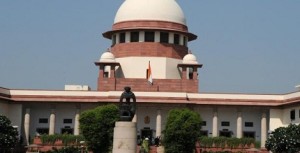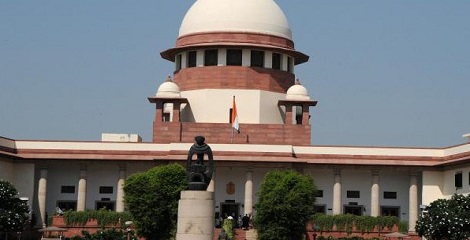On August 24, 2017 The Supreme Court (SC) ruled that privacy is a fundamental right because it is essential to the right to life.
i.A nine-judge Supreme Court bench declared privacy is a fundamental right that may impact everything from the government’s signature Aadhaar programme to civil liberties, rights to collection and use of personal data by Internet and financial firms. The decision can also impact restrictions on right to convert and choice of food.
ii.Chief Justice JS Khehar informed that ruled privacy was part of the fundamental right to life and personal liberty guaranteed to all citizens under Article 21 of the Constitution.
iv.The judgment will have a crucial bearing on the government’s Aadhaar scheme that collects personal details, biometrics to identify beneficiaries for accessing social benefits and government welfare scheme.
v.National programmes like Aadhaar, NATGRID, CCTNS, RSYB, DNA profiling, reproductive rights of women, privileged communications and brain mapping involve collection of personal data, including fingerprints, iris scans, bodily samples, and their storage in electronic form. The Law Commission has recently forwarded a Bill on Human DNA profiling. All this adds to the danger of data leakage.
Questioning the proposal to link Aadhaar
- A bunch of petitions were filed in the Supreme Court in 2015 challenging Aadhaar as a breach of privacy, informational self-determination and bodily integrity.
- Petitioners are expressing fear towards the data being collected for Aadhar card by private agencies may be misused, and questioning the proposal to link Aadhaar with PAN cards and phone numbers, and making the unique ID number mandatory for availing government benefits.
- Former attorney-general Mukul Rohatgi had first raised this issue to challenge the opponents, but new A-G KK Venugopal has since clarified that not all aspects of privacy were fundamental rights.
Explanation of Right to privacy
- It had the reason for collection and use of personal data of citizens for Aadhaar become a law under the Aadhaar Act of 2016.The government claimed Aadhaar was a solution to end corruption in public distribution, money laundering and terror funding.
- Supreme Court also concerned about collection and use of data was the risk of personal information falling in the hands of private players and service providers.
- Both the government and service providers collect personal data like mobile phone numbers, bank details, addresses, date of birth, sexual identities, health records, ownership of property and taxes without providing safeguards from third parties.
- The Supreme Court often demanded the government whether it has plans to set up a “robust data protection mechanism”.
- The government informed the Bench a committee of experts led by former Supreme Court judge, Justice B.N. Srikrishna, has already been constituted on July 31, 2017 to identify “key data protection issues” and suggest a draft data protection Bill.





